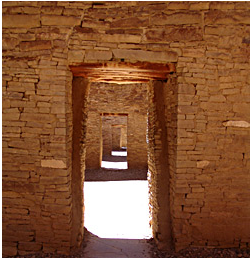Publication Date
5-1-2012
Abstract
This dissertation concerns human-environment interactions in southeastern Portugal during the centuries following the dissolution of the Western Roman Empire. In contrast to the feudal systems that developed across Western Europe outside Iberia, the Islamic polities that controlled the study area from 711 to 1248 C.E. allowed agrarian producers a great deal of political and economic independence. As a result, rural areas were more densely populated and the residents were wealthier than in earlier or later periods or contemporary feudal Christian kingdoms. The archaeological, geological, and historical investigations reported in this volume illuminate the timing, nature, and causes of past ecological change in the study area, its relationship to population growth and changing land use patterns, and the role of social organization in mediating relationships between people and the environment. Large scale pedestrian surveys documented dramatic increases in both site numbers and total occupied area during the Islamic period. They also identified locations within the study area that were densely populated and others that were more sparsely occupied in the past. Soil-stratigraphic studies of floodplain sediments exposed along incised streams suggested erosion and arroyo formation in densely populated areas during ix the Islamic period. Complimentary studies completed in soil test pits excavated along hillslopes, coupled with laboratory determinations of bulk magnetic susceptibility of sediments, showed that past erosion was severe and widespread throughout the densely populated areas. A program of optically stimulated luminescence dating and radiocarbon dating demonstrated that severe erosion and arroyo formation occurred rapidly during the later Islamic period. Additional evidence indicates that there was no significant erosion prior to the 20th century in areas that were sparsely occupied during the Islamic period, which strongly suggests that people caused degradation in the densely occupied areas. Dramatic population growth through the early Islamic period coincided with moderate soil erosion and progressive deforestation. Despite these ecological transformations agro-pastoralism remained productive during the first four centuries after 711 C.E., suggesting that production was sustainable at the scale of human lifetimes. As the Islamic state deteriorated and Christian armies advanced south in the 11th century, urban elites increased demands for taxes from independent rural communities. Facing taxation and diminished security, rural populations chose to augment production even though signs of degradation must have become increasingly apparent. Enlarging the area devoted to wheat cultivation in particular made the landscape highly susceptible to erosion. Widespread plowing combined with a minor climate change to trigger severe erosion and arroyo formation in the mid-12th century, dramatically reducing agricultural potential. The agrarian economy collapsed. Rural areas were abandoned a century before the Christian reconquista and not reoccupied for four centuries. This study of long-term human-environment interactions illuminates previously unexamined aspects of the growth and decline of the Islamic state in Iberia. It makes methodological contributions to the fields of geoarchaeology and environmental archaeology, particularly by adopting a landscape-scale approach to geoarchaeological research and by using optically stimulated luminescence assays to date past soil erosion directly. The results illustrate the processes of ecological degradation and rebound and the types of production that are sustainable at different spatial and temporal scales on a Mediterranean landscape threatened by desertification. Finally, the research begins to clarify how different socio-economic systems mediate human impacts on the environment at the scale of centuries.
Project Sponsors
A Doctoral Dissertation Improvement Grant (Award ID # 0715321) provided by the National Science Foundation, the UNM Dean’s Dissertation Fellowship (2006 – 2007) funded by the National Science Foundation, Research, Project and Travel Grants and a Graduate Research and Development Grant from UNM’s Office of Graduate Studies, a Field Research Grant from the Latin America and Iberia Institute, and r Student Resource Allocation Committee grants from the UNM Graduate and Professional Student Association
Document Type
Dissertation
Language
English
Degree Name
Anthropology
Level of Degree
Doctoral
Department Name
Anthropology
First Committee Member (Chair)
James L. Boone
Second Committee Member
Grant A. Meyer
Third Committee Member
Lawrence Guy Straus
Fourth Committee Member
Wirt H. Wills
Recommended Citation
Worman, F. Scott. "Tribes, States, and Landscapes: The Ecological Impacts of Changing Land Use During the Islamic Period in Southern Portugal." (2012). https://digitalrepository.unm.edu/anth_etds/77

